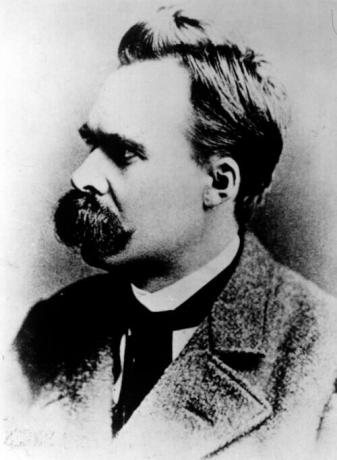At a time when an attempt is being made to organize Christian thought, in addition to the various sects, various ways of constituting this thought according to certain criteria also appear. For some, faith is enough in itself to convince and convert people to the “good news”. For others, it is necessary to use Greek philosophy to rationally justify the Christian faith. In this environment, in the beginning of the third century, the famous School of Alexandria appears. Its first advocate, even though it was its founder, was Clement.
Clement saw that Greek philosophy was good and that therefore it must be derived from God Himself. Men who philosophize seek to explain reality and themselves, fleeing from vices and passions that do not allow them to develop their spirituality. Bad men, according to Clemente, do not philosophize. Although developed under the aegis of paganism, the philosophy of the Greeks anticipates, prepares these people for the message of Christ.
According to Clement, before Jesus and the New Testament, there was the Old Testament Law and the Greek natural reason as God's indirect instrument to guide men. He realizes that philosophy played a pedagogical role, guiding Gentiles towards Christianity, albeit unaware of it. Possessing neither the (Jewish) Law nor the faith, the truth came to the Greeks through reason. This is an indirect way for God to communicate the truth to us.
The men who lived in Greece according to virtue, that is, honesty, kindness, courage, etc., are examples that Christianity has a continuity with ancient philosophy. Clement exemplifies that the story of truth is like a stream of water that has two great streams: one born from the Law revealed to the Jews in the Old Testament; the other, from the speculative reason of the Greek philosophers. Both come together in a third stream which is the revealed faith of the God who became flesh, the Christian God.
Do not stop now... There's more after the advertising ;)
For Clement, who strives to draw a parallel between philosophy and Jewish Law, Christian revelation did not come to abolish the Law, but to fulfill it. Thus, faith should not abolish reason, since reason represents to the Greek what the Old Testament Law represents to the Jews. In this way, philosophy would be useful to prepare the faith for those who have not yet reached it, and this would be done through the rational justification of Christian dogmas. Furthermore, philosophy would be useful to those who already profess the faith, as it would help in the argumentative defense of the faith against those who ridicule it.
Another way to prove the usefulness of philosophy would be to understand that God distributes many different gifts to each person. So we have smarter people, more sensitive people, more observant people, etc. If these characteristics are gifts, why despise reason instead of putting it at the service of faith, realizing that it too is a divine gift? However, reason must not go beyond the limits set by faith. Reason is merely an auxiliary to it. Philosophy is the pursuit of wisdom and only faith in revealed truth can attest to that wisdom.
Therefore, Clement is one of those thinkers who trust and defend a conciliation between faith and reason, faith being the criterion of truth, since in it the Logos becomes the total truth in Christ. For the reason of the ancients who perceived this truth only partially, faith must be helped. Thus, it is necessary to “believe to understand”.
By João Francisco P. Cabral
Brazil School Collaborator
Graduated in Philosophy from the Federal University of Uberlândia - UFU
Master's student in Philosophy at the State University of Campinas - UNICAMP
Philosophy - Brazil School
Would you like to reference this text in a school or academic work? Look:
CABRAL, João Francisco Pereira. "Clement of Alexandria and the Defense of Philosophy in the Christian Religion"; Brazil School. Available in: https://brasilescola.uol.com.br/filosofia/clemente-alexandria-defesa-filosofia-na-religiao-crista.htm. Accessed on June 28, 2021.

